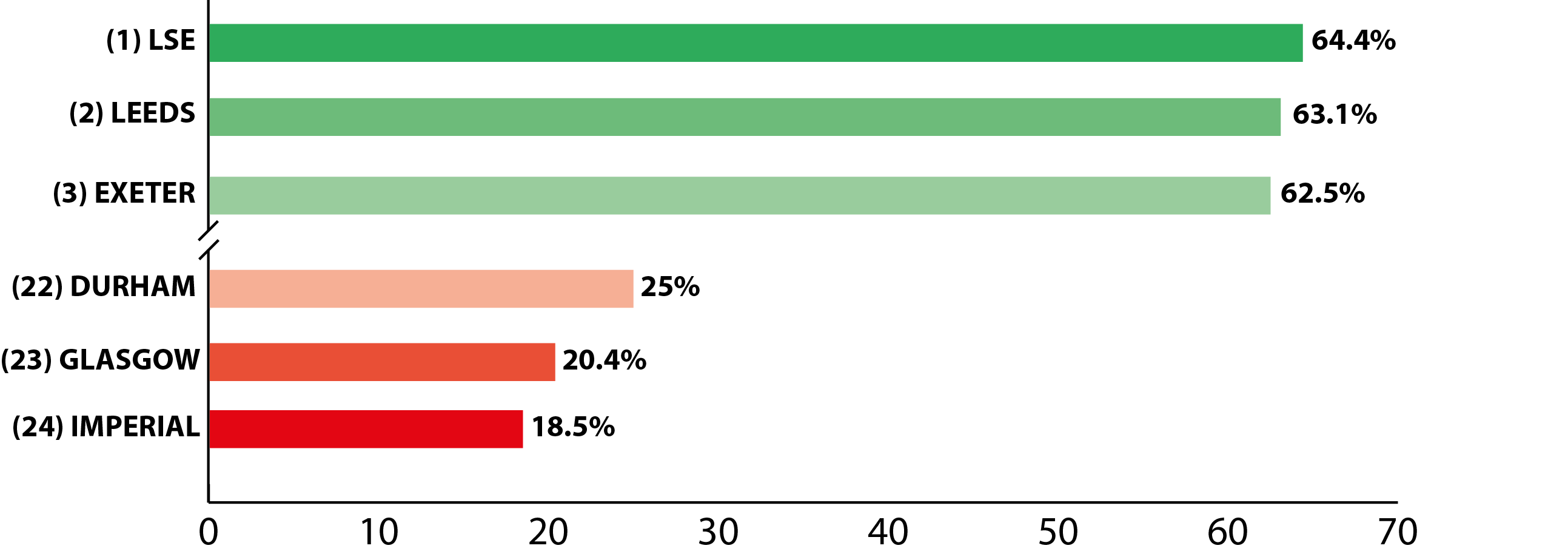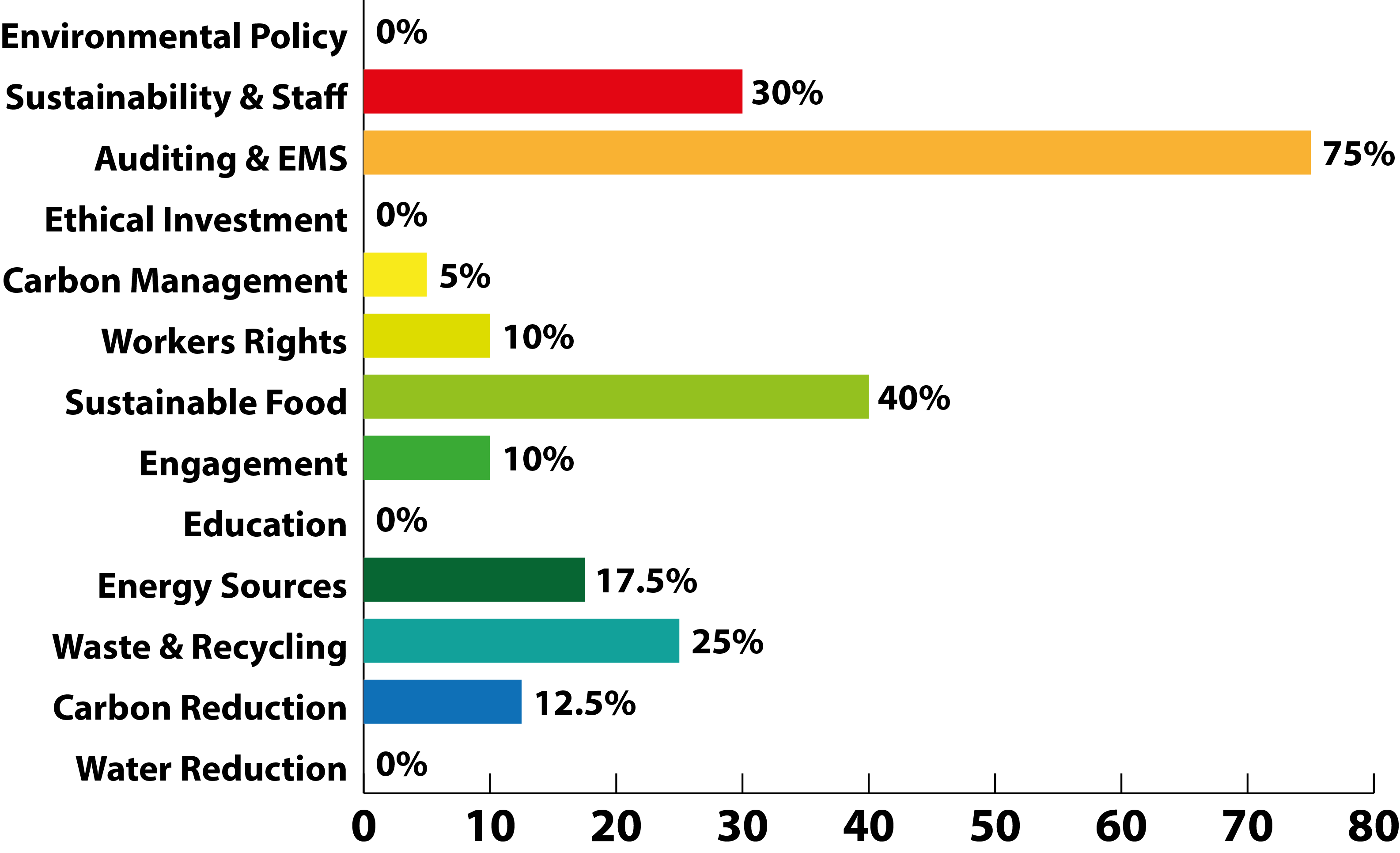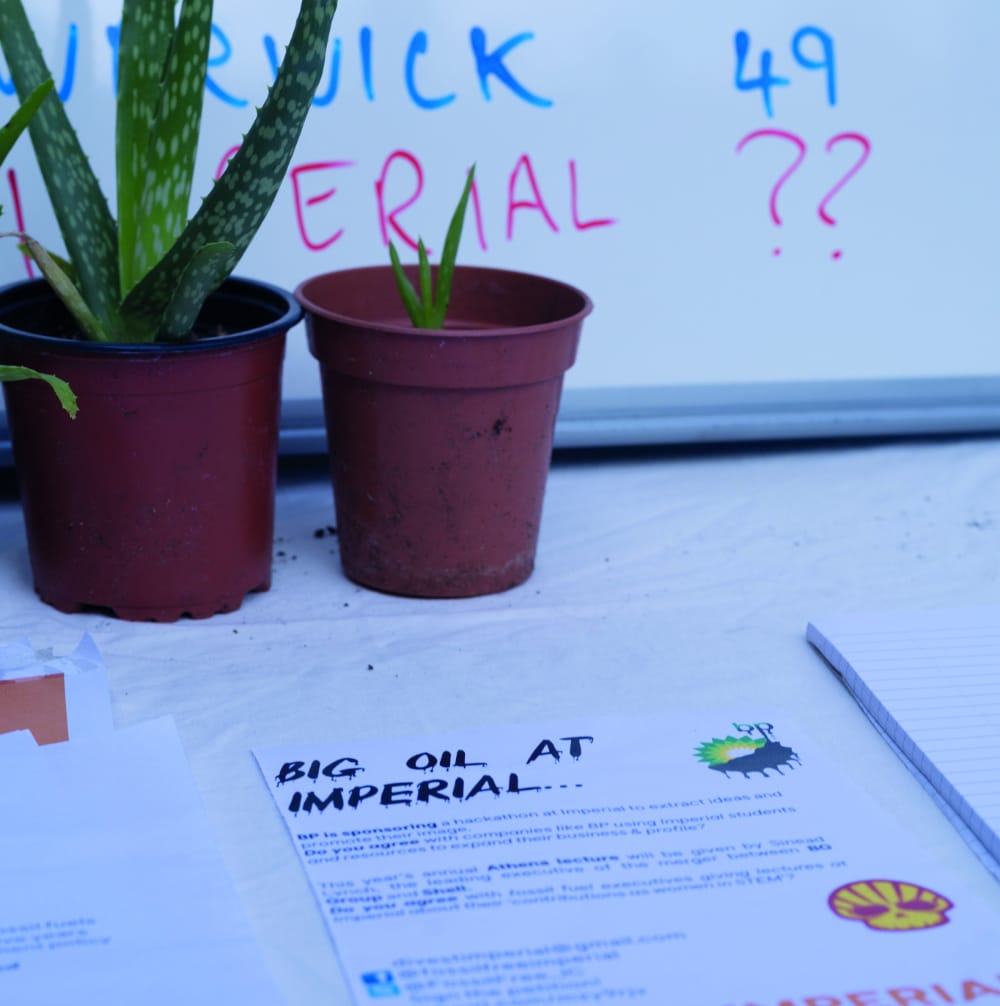Imperial sink to the bottom of People & Planet's ethical league tables
Imperial came 141st in the rankings – bottom of the Russell Group – which look at a university's ethical and environmental policy

People & Planet has released its university league tables, which show Imperial College London is among the worst higher education institutions in the country in terms of sustainability and environmental policy.
Imperial was placed 141st out of 154 higher education providers in this year’s league tables, making it the worst-performing university in the Russell Group. It achieved an overall score of 18.5%, which is a ‘Failed’ rating. In contrast, Manchester Metropolitan University, which topped the table, scored 77.6%, and the London School of Economics, which came highest of the Russell Group, scored 64.4%.
The league tables, which have been running for ten years, take a number of metrics into account when deciding the rankings, largely centred around what environmental and ethical policy the university has in place, and the amount of support environmental initiatives have on campus. Half the information is gathered from publically available sources, while half is from data published by other agencies.
“Imperial placed 141st of 154 universities, making it bottom of the Russell Group”
This year’s results are a sharp decline for Imperial, which came 96th in the previous version of the table, and was 16th out of the 24 Russell Group universities in 2015. Imperial failed to achieve a full score in any of the metrics used, and scored zero on environmental policy, ethical investment, education, and water reduction. It scored highest in environmental auditing and management systems, and sustainable food.

Rhidian Thomas, Imperial College Union’s Ethics and Environment Officer, called the results “at once both breathtakingly poor and entirely fair”, saying that “College’s chummy relationship with the fossil fuel industry is an ugly stain on its academic record – coupled with its continued pursuit of energy-intensive expansion, there’s no wonder it did so badly”. He went on to tell Felix he was “hugely proud of the Union’s decision to back divestment last year”, and looked forward to “the day when College too finds the moral conviction to put its money where its mouth is”.
The student group Divest Imperial, which campaigns for Imperial to stop investment in oil and gas companies, called the results “appalling, especially for a ‘world-leading’ institution which markets itself on global outlook, sustainability and environmental responsibility”. It said that for many students the results would be “unsurprising”, given that “the constant, visible presence of environmentally and societally damaging companies is simply a fact of life on campus”.

People & Planet reported that Imperial has no current policy on ethical investments, and accepted nearly £24 million in donations from the fossil fuel industry between 2009-2014. Imperial reportedly has nearly £9 million currently invested in the fossil fuel industry, including nearly £2 million in Statoil, £300,000 in BP, and £1.5 million in Shell – nearly double what was invested in the previous year.
Divest Imperial said the fossil fuel industries “seem woven into the fabric of university, blatantly contradicting the aims of the College, and undermining the research into renewables and climate change undertaken here”. The group set up a stall the Thursday after the results were released, asking Imperial students and staff to guess where the university had placed.
Imperial also has a large amount invested in arms companies: it has increased its endowment fund investments in Lockheed Martin, for example, which produces weapons for drones, among other products, from £1.3 million to £2.215 million.

Education for Sustainable Development (ESD) was another metric in which Imperial fared badly, scoring zero. People & Planet describe ESD as “working with students to encourage them to consider what the concept of global citizenship means in the context of their own discipline”, as well as encouraging thinking about ethical issues and developing “a future-facing outlook”. According to People & Planet, Imperial lacks any form of framework or strategy for ESD.
Imperial has a number of departments dedicated to sustainability and climate change, including the Centre for Environmental Policy and the Grantham Institute for Climate Change. It also states on the website they “recognise the effect that (our) operations and activities have on the environment”, and “seek to establish an ethos at all levels and in all departments towards protecting and improving the environment”.
However, out of a total community of staff and students numbering more than 13,000, Imperial only employs a single senior staff member responsible for sustainability. People & Planet also failed to find evidence of an annually-reviewed, publicly-available environmental policy, or sustainability goals in a number of areas, including community involvement and biodiversity.
“Divest Imperial said that the results would be 'unsurprising' for many students and staff”
One Imperial academic said that they were “not at all surprised” about Imperial’s results in the league tables. They told Felix: “It’s about time the College takes this as seriously as the other 140 universities ahead of us in the table. We’re not only missing a trick, we’re beginning to look like an unashamed laughing stock of penny-pinching suits.”
In a statement, a College representative said they “recognise that we have a responsibility to carry out our mission sustainably and to minimise the environmental impact of our operations”. They referred to their “world-leading research in energy, the environment, and climate change”, which produces “fact-based reports that advance the field, inform the public, and contribute to global policy”.
Imperial is currently carrying out a College-wide survey as part of their 'Greening Imperial' scoping survey. The College say the project "investigates the ways in which Imperial impacts on sustainability beyond its walls with its teaching, research and wider support to policy makers and industry." The survey will run until the end of this term.
Divestment in fossil fuel companies has become a point of contention across a number of UK campuses. The University of East Anglia divested last week, following a four-year campaign by students and activists.
Aside from the ethical arguments against investing in fossil fuel companies, there is also the economic threat of the ‘carbon bubble’: current valuation of fossil fuel companies is based on the assumption that all reserves will be consumed, but it is likely that international agreements will limit the amount of hydrocarbons consumed. Mark Carney, the Governor of the Bank of England, has warned about the “potentially huge” threat this bubble poses to investors.
The ranking of universities is carried out by People & Planet throughout the summer. Universities have the opportunity to appeal their score before it is published. Sian Berry, the Green Party politician who came third in 2016’s London mayoral race, said that the rankings are “important for anyone – staff member or student – who want to improve their university’s record on green and ethical issues”.









